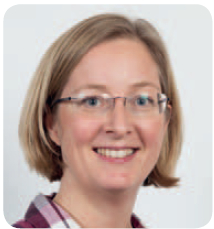Starting a dialogue with publishers
At the recent Internet Librarian International conference in London, Karin Bystrom of Uppsala University in Sweden emphasised the need for discussion in closing the gap between librarians and publishers

During the 2013 UKSG conference, T Scott Plutchak urged librarians and publishers to get to know each other outside of the buyer/seller relationship, and to realise that we have many common goals and ideals.
Plutchak is head librarian at the University of Alabama and has been an editor for the Journal of the Medical Library Association, so he can see the problem from both sides. The publishing industry and academic libraries are both in a state of change, and both have new roles and challenges. We often have false preconceptions about each other. We work in parallel worlds but rarely collaborate or cooperate.
Inspired by Plutchak, Uppsala University library initiated a discussion bettween librarians and publishers in May 2014. With the National library of Sweden and Södertörn University library, we organised a seminar with presentations and group discussions with the aim of opening up a dialogue between publishers and academic libraries. Both parties described their current situation and needs for the future.
We focused the discussion on Swedish e-books. At the moment not many Swedish e-books are available to academic libraries, although the demand from our users is great, especially for non-fiction and textbooks. Some publishers sell to public libraries – but that is mostly fiction, and there has been problems finding a suitable pricing and access model. A few Swedish publishers already sell e-books to academic libraries, but most publishers don’t, so we saw the seminar as a possibility for publishers with little or no experience of e-books to hear from publishers with more experience in this area.
The seminar started with presentations from four publishers, two aggregators, a trade organisation, two academic libraries and the National library of Sweden – all briefly stating their current situation and forecasts for the future in regards to e-books.
Group discussions followed. These were very lively and concentrated on our common goals, problems that needed solving, and how to move forward.
It seems that the first thing we need to do is to raise levels of knowledge. We can’t discuss solutions if we don’t know about each others’ needs, fears, budgetary concerns and workflows. The potential for collaboration is great; there are many competencies in the library community that publishers could use – such as metadata, indexing, models and platform interface. In turn, librarians need to know more about the e-book market, demand, pricing and copyright issues.
The second thing is to establish a long-term forum for discussions and dialogue. Many participants thought the issue of Swedish e-books should be a question for the National Library as it has lot of experience of relations with publishers. Another suggestion was to set up a ‘library/publisher advisory board’.
The third big issue is platforms, models and access. Some publishers already have their own platform, some are considering an aggregator and some have nothing. We discussed what the best approach would be for a small Swedish publisher. To invest in developing an own platform can be both difficult and costly. We hope to continue the discussion about the best platform and model solution, but it is difficult because publishers have company secrets and strategies that they can’t or won’t share. We don’t want the discussion to get stuck on those issues – but, hopefully, by talking about a hypothetical platform we can find a ‘sweet spot’; a model that is appealing to both publishers and libraries.
A practical suggestion was to have a pilot test for a few e-books to explore the demand and possible models, but that is still a long way ahead. In this case, librarians just want to get the information out there but publishers are more cautious, and the invitation to investigate the possibilities for a pilot scheme was turned down. Publishers felt insecure discussing their models – even hypothetical ones – and were hesitant to reveal their plans and strategies.
We understand now that, perhaps, we need to back down a bit – we want to continue the dialogue, but maybe we should focus on giving information and on building knowledge. Our work is so complex, and it is a new world for them. We will also try to formalise the librarians’ collaboration on this, maybe by setting up a strategic working group of some kind. If we are many we can be more flexible but we can also speak with one voice.
It is clear that the biggest problem is that we know so little about each other’s conditions and work but we have already accomplished a lot. We have a dialogue that we didn’t have before and we have shown publishers that librarians can be their partners. We can’t change the world, but we must do what we can in the development of our services, and to be an advocate for our users.






